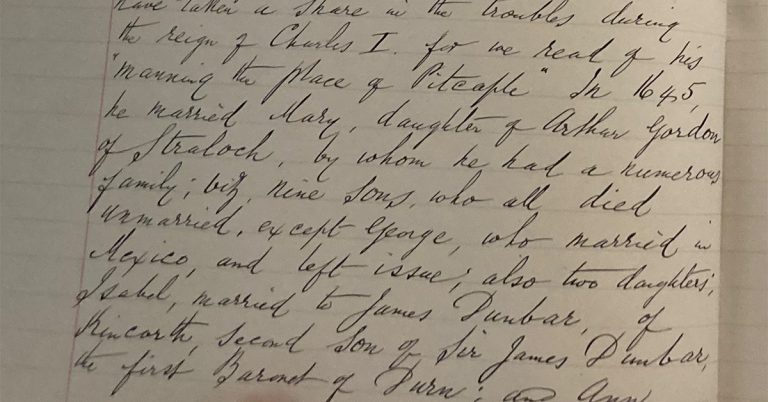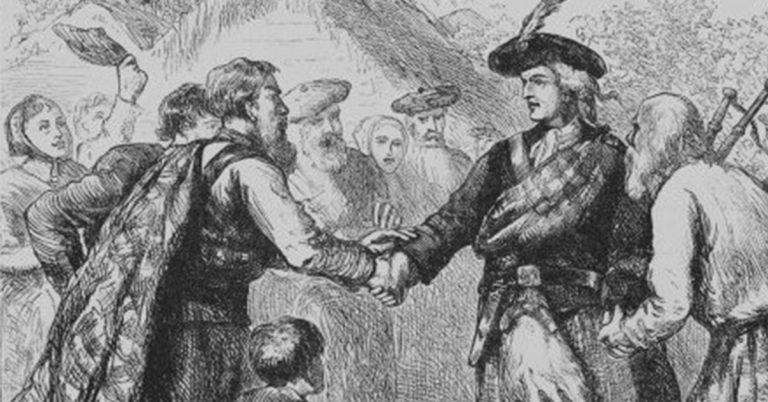
Our book examines how and where women made and showed their films; and what those experiences reveal about the women holding the cameras and the profoundly changing twentieth century world they captured on film.
Whether teachers, homemakers, unmarried, middle or upper class, avid travellers or deeply anchored in remote communities, most British women who experimented with amateur filmmaking on film or video remain difficult to classify. The one thing they seem to share in common is that their choice to be behind a film camera was part of how they portrayed their own identities, as well as those of other people in front of it. Perhaps the images they filmed offer alternative versions of their own self-portraits? Apart from that, they are quirkily different and that is the joy of delving into the stories being reclaimed about them and their visual practice.
Many female amateur films succeeded, voluntarily or accidentally, to break story-telling taboos and therefore the legacy of their diverse visual texts requires cross-disciplinary scrutiny. As they animated, recorded informal family scenes, and made documentaries, women amateur filmmakers were creating a corpus of visually mediated historical experience often against, or within, male-dominated master narratives. Patriarchal structures and assumptions shaped their everyday worlds for decades, even when they had agency and elements of autonomy within their personal lives.
Today, their work, whether the simplest single cine reel with domestic scenes, or a carefully edited production, offers an uncharted theoretical territory. It was for these reasons that we chose to combine historical perspectives with experimenting with theories borrowed from visual and social anthropology, and with concepts such as autobiographical memory and the process of creating a storied self, when exploring some of the case studies discussed in this volume. Having written British Women Amateur Filmmakers: National Memories and Global Identities from complementary but contrasting perspectives, we hope that these women filmmakers’ practices open fresh routes to the interpretation of amateur cinema.
- British Women Amateur Filmmakers is available now. Find out more on the Edinburgh University Press website
A selection of images featured in British Women Amateur Filmmakers:
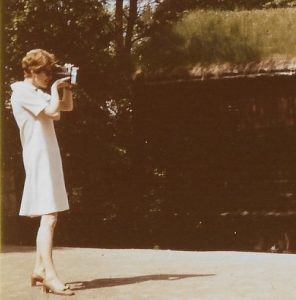
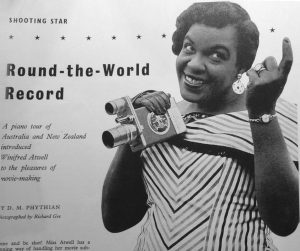
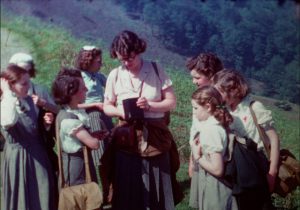
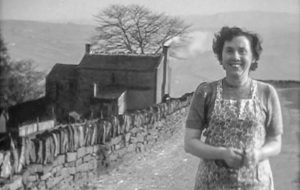
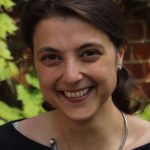
Annamaria Motrescu-Mayes is an Affiliated Lecturer in new and amateur media at the Department of Social Anthropology, and Fellow and Tutor at Clare Hall, University of Cambridge. Her work as a visual anthropologist relies primarily on imperial and gender studies.
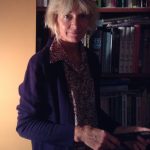
Heather Norris Nicholson holds honorary research positions at the University of Huddersfield and also at Manchester Metropolitan University. She has encouraged archival, scholarly and popular interest in amateur film for decades through writing, teaching and community outreach.




